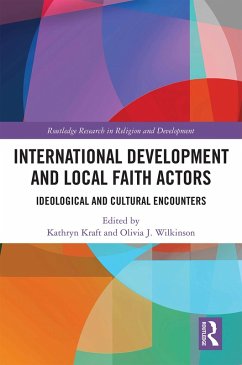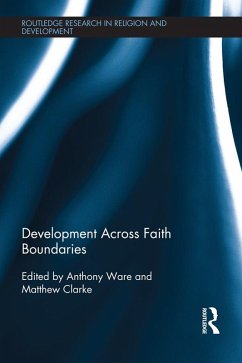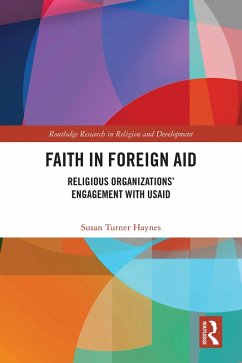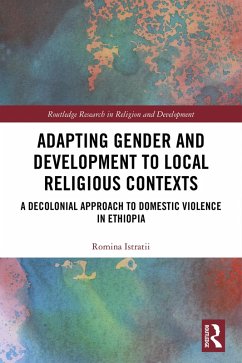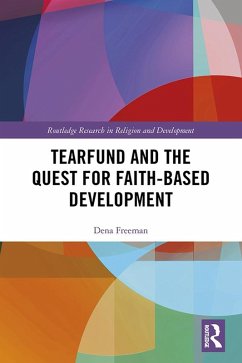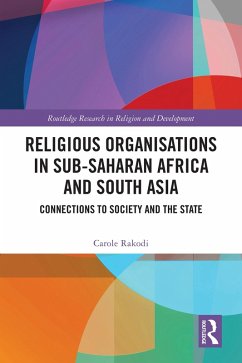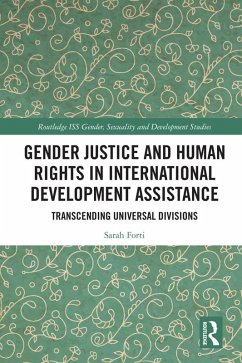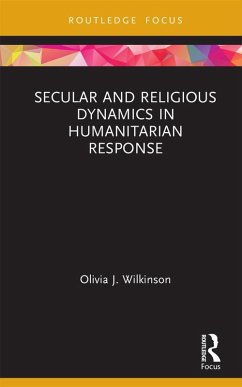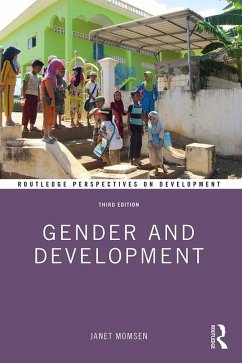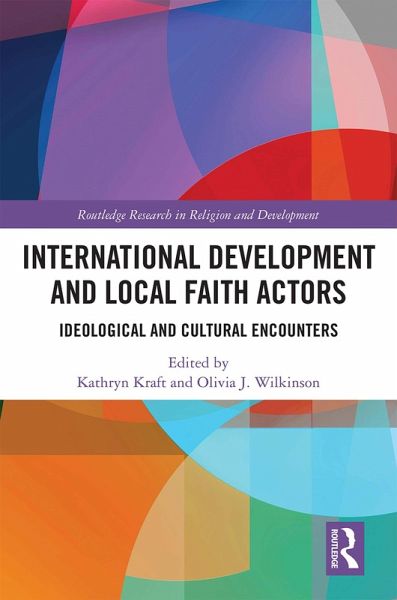
International Development and Local Faith Actors (eBook, ePUB)
Ideological and Cultural Encounters
Redaktion: Kraft, Kathryn; Wilkinson, Olivia J.
Versandkostenfrei!
Sofort per Download lieferbar
41,95 €
inkl. MwSt.
Weitere Ausgaben:

PAYBACK Punkte
21 °P sammeln!
This book explores the interplay and dialogue between faith communities and the humanitarian-development community. Faith and religion are key influencers of thought and practice in many communities around the world and development practitioners would not be able to change behaviours for improved health and social relations without the understanding and influence of those with authority in communities, such as religious leaders. Equally, religious leaders feel responsibilities to their communities, but do not necessarily have the technical knowledge and resources at hand to provide the informa...
This book explores the interplay and dialogue between faith communities and the humanitarian-development community. Faith and religion are key influencers of thought and practice in many communities around the world and development practitioners would not be able to change behaviours for improved health and social relations without the understanding and influence of those with authority in communities, such as religious leaders. Equally, religious leaders feel responsibilities to their communities, but do not necessarily have the technical knowledge and resources at hand to provide the information or services needed to promote the well-being of all in their scope of influence. The book demonstrates that partnerships between humanitarian-development practitioners and religious communities can be mutually beneficial exchanges, but that there are also frequently pitfalls along the way and opportunities for lessons to be learned by each party.
Delving into how humanitarians and faith communities engage with one another, the book focuses on building knowledge about how they interact as peers with different yet complementary roles in community development. The authors draw on the Channels of Hope methodology, a tool which seeks to engage faith leaders in addressing social norms and enact social change, as well as other related research in the sector to demonstrate the many ways in which humanitarian and development policy makers and practitioners could achieve more systematic engagement with faith groups. This book is an important contribution to the growing body of literature on faith and development, and will be useful both to researchers, and to practitioners working with faith communities.
Delving into how humanitarians and faith communities engage with one another, the book focuses on building knowledge about how they interact as peers with different yet complementary roles in community development. The authors draw on the Channels of Hope methodology, a tool which seeks to engage faith leaders in addressing social norms and enact social change, as well as other related research in the sector to demonstrate the many ways in which humanitarian and development policy makers and practitioners could achieve more systematic engagement with faith groups. This book is an important contribution to the growing body of literature on faith and development, and will be useful both to researchers, and to practitioners working with faith communities.
Dieser Download kann aus rechtlichen Gründen nur mit Rechnungsadresse in A, B, BG, CY, CZ, D, DK, EW, E, FIN, F, GR, HR, H, IRL, I, LT, L, LR, M, NL, PL, P, R, S, SLO, SK ausgeliefert werden.




